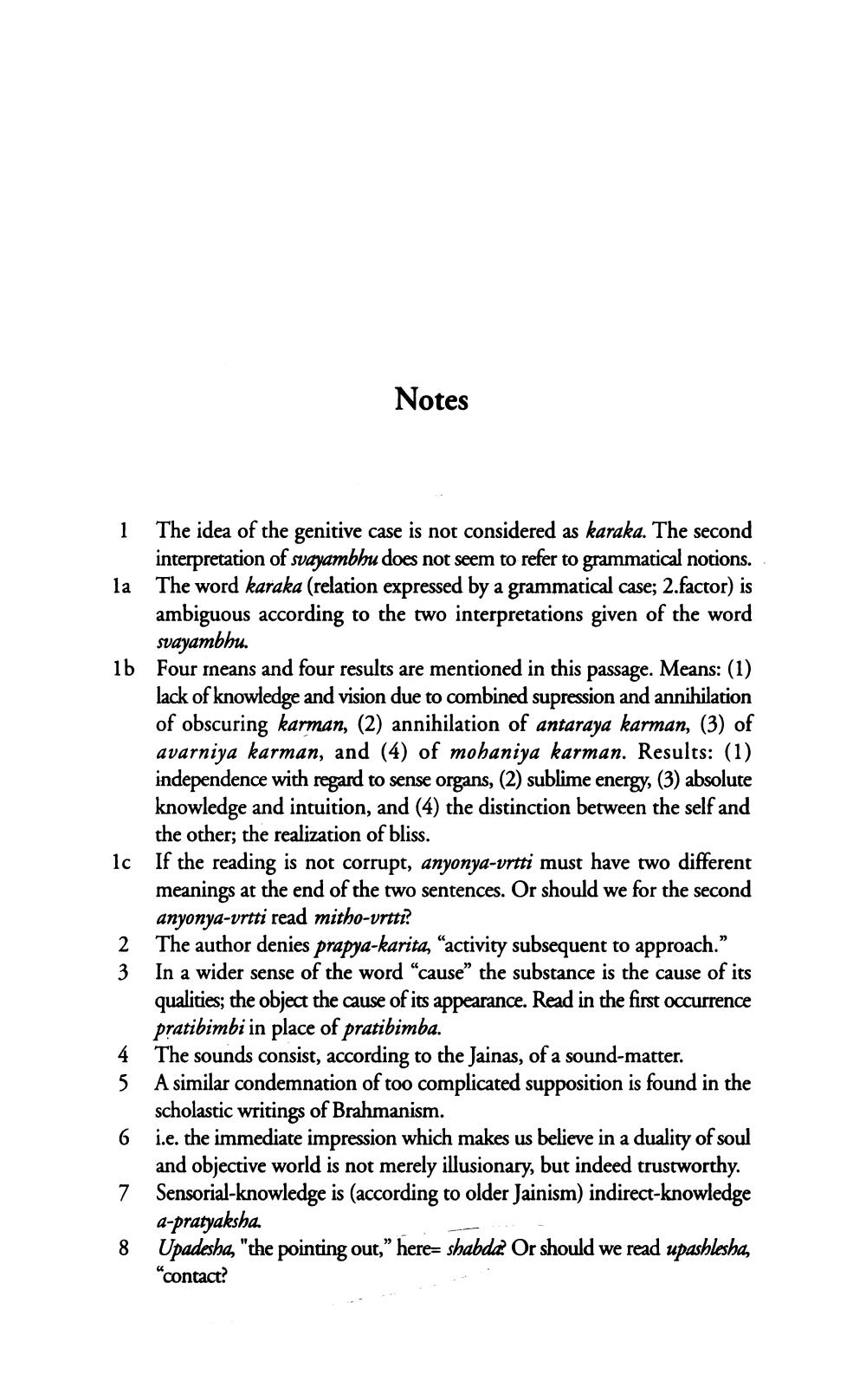________________
Notes
1 The idea of the genitive case is not considered as karaka. The second
interpretation of svayambhu does not seem to refer to grammatical notions. la The word karaka (relation expressed by a grammatical case; 2. factor) is
ambiguous according to the two interpretations given of the word
svayambhu. 1b Four means and four results are mentioned in this passage. Means: (1)
lack of knowledge and vision due to combined supression and annihilation of obscuring karman, (2) annihilation of antaraya karman, (3) of avarniya karman, and (4) of mohaniya karman. Results: (1) independence with regard to sense organs, (2) sublime energy, (3) absolute knowledge and intuition, and (4) the distinction between the self and
the other; the realization of bliss. lc If the reading is not corrupt, anyonya-vrtti must have two different
meanings at the end of the two sentences. Or should we for the second
anyonya-vrtti read mitho-vrtti? 2 The author denies prapya-karita, "activity subsequent to approach.” 3 In a wider sense of the word "cause” the substance is the cause of its
qualities; the object the cause of its appearance. Read in the first occurrence
pratibimbi in place of pratibimba. 4 The sounds consist, according to the Jainas, of a sound-matter. 5 A similar condemnation of too complicated supposition is found in the
scholastic writings of Brahmanism. 6 i.e. the immediate impression which makes us believe in a duality of soul
and objective world is not merely illusionary, but indeed trustworthy. 7 Sensorial-knowledge is (according to older Jainism) indirect-knowledge
a-pratyaksha 8 Upadesha, "the pointing out," here=shabda Or should we read upashlesha,
"contact?




